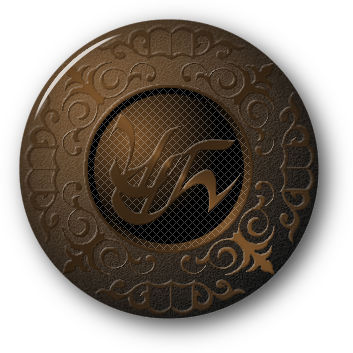

|
|
If we look back at some of the simple phrases we've learned up until now, we find a handful that may look like sentences with direct objects, but are actually a very different kind of sentence. Take Ken ziT (ken zith), which we learned in Lesson 4, for example. We know that Ken (ken) means I am, and ziT (zith), low, looks like it might be a direct object. Remember how direct objects need to be nouns, though? ziT (zith) is an adjective, which means it can't be a direct object. In fact, ziT (zith) is what we call a subject complement. Subject complements add to or complete (i.e., complement) a sentence's subject, unlike direct objects which relate not to the subject but to the verb of a sentence. Also unlike direct objects, subject complements can be both nouns and adjectives. Sentences with subject complements always occur in a set pattern: subject + copula + complement The copula, also known as the linking verb, is the verb that connects subject to complement, most of the time a form of Ken (ken), be, but also at times other verbs of existence, appearance, or becoming, like tUl (tūl), grow. This kind of construction works like a mathematical equation, where the copula is an equal sign telling us that the subject and complement correspond to one another, are equal to one another. In our example sentence, .Ken ziT, the implied subject I is equated with the complement low: I am low. When the subject complement is an adjective like low, it is called a predicate adjective. When the complement is a noun, Atrus Kenen erTseltan (ātrus kenen erthseltan) , Atrus is a writer, for example, it is called a predicate noun.
Subject complements, like subjects themselves, can be simple — consisting of a single word as in .Ken ziT — or complex — consisting of multiple word elements and modifiers as in .Ken erTseltan para. Complex subjects and complements can become very elaborate, but all such sentences will always boil down to the subject + copula + complement construction.
|
Myst, the Myst logo, and all games and books in the Myst series are registered trademarks and copyrights of Cyan Worlds, Inc. Myst Online: Uru Live is the sole property of Cyan Worlds Inc. The concepts, settings, characters, art, and situations of the Myst series of games and books are copyright Cyan Worlds, Inc. with all rights reserved. I make no claims to any such rights or to the intellectual properties of Cyan Worlds; nor do I intend to profit financially from their work. This web site is a fan work, and is meant solely for the amusement of myself and other fans of the Myst series of games and books. |